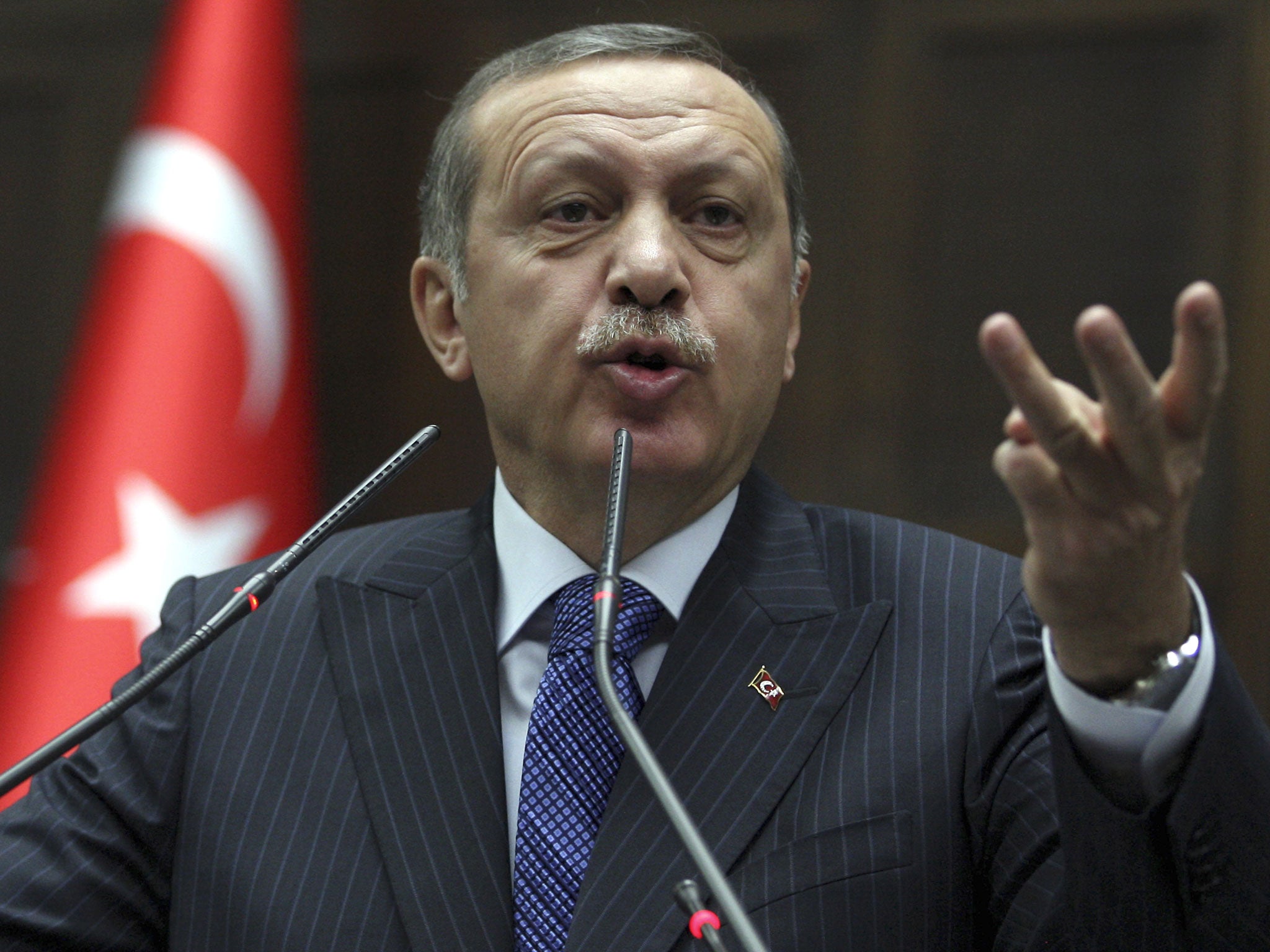Future of Turkish PM, Recep Tayyip Erdogan, threatened by feud with former ally
Premier dismisses police officers after corruption probe orchestrated by exiled preacher, Fethullah Gulen

Two of Turkey’s most influential figures are in the middle of a power struggle that could pose a serious challenge to the rule of its Prime Minister.
The country is gripped by its biggest corruption scandal in recent history. But many see the investigation as the first punch in the “ugly divorce” between the two leaders of Turkey’s Muslim electorate: Prime Minister Recep Tayyip Erdogan and the exiled Turkish preacher Fethullah Gulen, who heads a powerful religious movement in Turkey and is seen as holding sway over the police force.
It began with a series of dawn arrests on Tuesday. The sons of three cabinet ministers were detained by police. A little while later, Turkey’s state-run Halkbank was raided and its chief executive detained. By Wednesday evening, 52 people connected in some way to Mr Erdogan were also held. The raids and detentions are reportedly being led by Zekeriya Oz, a police commissioner said to be sympathetic to the Gulen movement. The suspects are accused of accepting and facilitating bribes to secure building permits for protected areas, the Turkish media reported. Mr Erdogan’s government hit back at the corruption investigation by dismissing 43 senior police officers for “abusing their power” – among them Huseyin Capkin, Istanbul’s police chief.
Those arrested are casualties in an acrimonious feud between Mr Erdogan and Mr Gulen that erupted when Mr Erdogan’s party announced plans to transform Turkey’s prep schools – many of which are administered by the Gulen movement. The changes would deprive the movement of revenue and influence.
Mr Gulen, a charismatic Muslim preacher who has lived in exile since 1999, has widespread support in the Turkish judiciary and police force. He allied with Mr Erdogan’s Justice and Development Party (AKP) in the early 2000s and was instrumental in helping him win three elections. Over the past decade, they have worked together to reduce the influence of the Turkish military.
Gulenists hold considerable sway and insight in the workings of the party. Ahmet Sik, a journalist who was imprisoned for writing a book about Mr Gulen, describes his movement as “ghosts: they are everywhere and nowhere”. His influence in the Turkish police and legal system is seen by many as a threat to Mr Erdogan’s power. The recent feud between Mr Erdogan and Mr Gulen has raised the question of who has the support of Turkey’s Muslim majority – a potent question months before Turks are set to go to the polls.
Speaking on Tuesday after the first round of arrests, Mr Erdogan blamed “dark circles” for the investigation and hinted at an anti-government conspiracy. “They can use whatever ugly methods they like or turn to dirty alliances,” he said. “Neither the nation nor we will give permission to those who seek to settle their scores outside the ballot box.”
Though he claims support of about 50 per cent of the electorate, analysts have suggested the scandal may damage Mr Erdogan’s chances in elections next year. “AKP’s election campaigns are all based on mega-construction projects and relentless development. The same government is now being accused of having established a system of corruption in these very sectors,” said Yasar Adanali, a sociologist.
Join our commenting forum
Join thought-provoking conversations, follow other Independent readers and see their replies
Comments
Bookmark popover
Removed from bookmarks